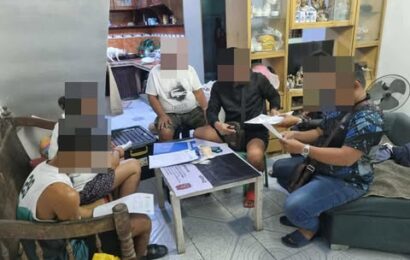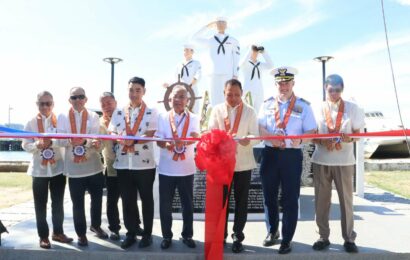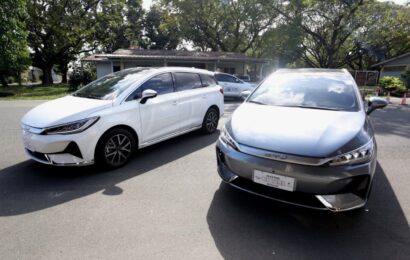Subic Bay Freeport – The Subic Bay Metropolitan Authority (SBMA) has enhanced this premier Freeport’s capacity and operational efficiency to keep up with the growing demand for multi-modal logistics in the Asian region.

This was the statement made by SBMA Senior Deputy Administrator (SDA) for Port Operations Ronnie Yambao during the Super Terminal Expo 2024 held at the Hong Kong AsiaWorld-Expo on November 5, 2024.
The three-day expo is Asia’s pioneering design, construction and operations event that showcases the next wave of innovation in passenger and cargo terminal, while bringing together experts and decision-makers to shape next-gen airports.
The Super Terminal Expo’s opening ceremony was graced by Michael Wong Wai-lun, acting Financial Secretary of the Government of the HK Special Administrative Region, Vivian Cheung, CEO of the HK Airport Authority, and other government officials and influential members from industry associations.
During a panel discussion, Yambao emphasized three important pillars in enhancing Subic Bay Freeport’s capacity and operational efficiency: first is automation, with systems in place to make cargo movement seamless and transactions much faster and more efficient; second is investment in infrastructure like port rehabilitation, the Vessel Traffic Management System or VTMS, and the acquisition of equipment; and third is by expanding the SBMA’s network thru trade missions and creating partnerships with different ports to increase trade and commerce.
He added that the automations installed in the SBMA are the Automated System for Customs Data (ASYCUDA), Electronic Transit Admission Permit System (ETAPS), and Automated Export Documentation System (AEDS), which are pursuant to President Marcos Jr’s thrust on the ease of doing business thru automation.
“Subic Bay Freeport is the only Freeport in the Philippines that has a complete logistics infrastructure in one location, that is managed by the SBMA. It has an airport, and a seaport with a modern container terminal, and piers that can accommodate different types of cargo, to be connected to the Luzon Economic Corridor by a railway in the near future,” he further said.
It is accessible by land, sea, air, and in the near future, by railway. It has an airport and a seaport with modern facilities and a container terminal with a capacity of 600,000 TEUs that can be expanded to handle one million TEUs.
The freeport also boasts of four industrial parks with 15 piers that can accommodate commercial vessels and cruise ships. There are 1,900 companies operating in the Freeport with a total of USD12-billion worth of investments.
“Locators in this Freeport enjoy fiscal incentives under the CREATE Law and all the ancillary services are available to complete the logistics ecosystem in this premier port. Lastly, the SBMA offers competitive rates in port services, in fact, we are 20 percent cheaper compared to Port of Manila,” he said.
Qualified export enterprises shall be entitled to four to seven years Income Tax Holiday (ITH) to be followed by 10 years five percent Special Corporate Income Tax (SCIT) or Enhanced Deductions.
Subic Bay is also a tourist and cruise ship destination. Currently, the SBMA is developing a facility to be used as a home port for cruise ships. A home port is a port where a cruise ship will take on or change over the majority of its passengers, while taking on stocks, fuel and supplies.
Team Philippines joined key global leaders in airports, aviation and logistics industries for the Super Terminal Expo 2024 where over 800 international and local aviation professionals were in attendance.
The SBMA is part of Team Philippines led by Department of Transportation Undersecretary for Airports and Aviation Roberto C.O. Lim. Yambao was part of the delegation along with Subic-Clark Alliance for Development (SCAD) Executive Director Amee Fabros, and Clark International Airport Corporation (CIAC) Chief Business Development Officer Melissa Feliciano.





